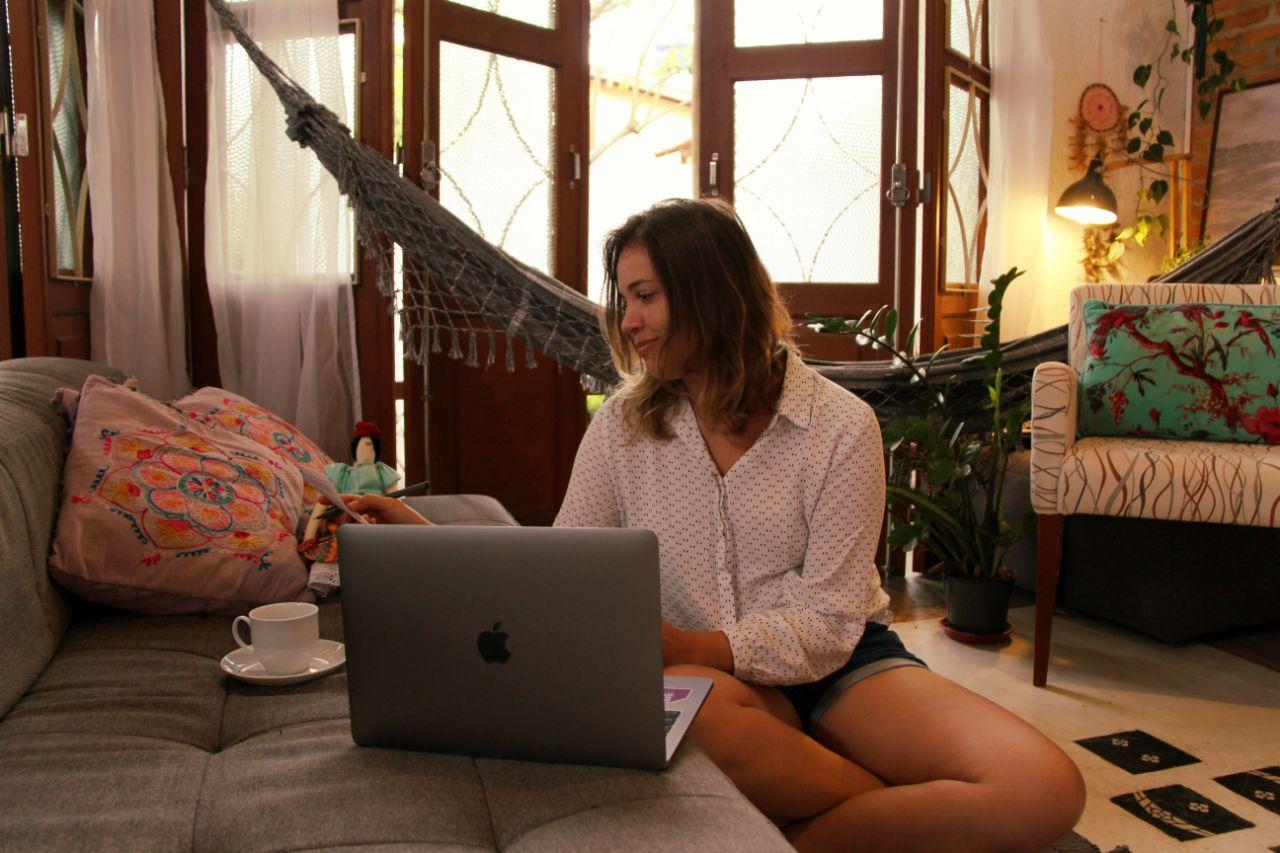Andriele and I met through synchronous circumstances in Brazil, 2017; via couchsurfing. Andriele opened her home, her life and heart, and we spent many hours talking about our shared interests. One of which is psychology and psychotherapy, more specifically, the intricate nature and complexity of human expression and how unique manifestations arise in our behaviours, emotions and predicament.
Enquiring minds lead to a quest for understanding to depths we cannot perceive until we find there are still questions we would like answering and appreciating that the more knowledge we acquire, the less we need this knowledge in the way we imagined.
Two years later I returned to Brazil, and to Andriele’s home, which has come to feel like a home for me too. Both Andriele and I have been on intentional transformative journeys from when we saw each other last, the result of which was the inspiration for this article.
Reconnecting again, we shared our stories on where life has guided us the past two years and how our interests in Psychology have been woven into our personal callings and professions. A chartered psychologist and an intuitive led therapist with a holistic therapy framework, working with the Inner Child archetype made for an interesting discussion on practice, perspective and compatibility, on several layers of consideration; professional, academic and spiritual.
I invited Andriele to take part in the inner child workshop with me to enable her to experience first hand the intuitive side of therapy that is often overlooked in areas of psychology, psychiatry and beyond into general science. Intuitivity is not something we can grasp, tie down and define; it is a naturally occurring phenomenon that has proved vital to the survival of our species.
Today, however, there is growing interest in rediscovering this aspect of ourselves, and many modern day interpretations on spiritual practices tap into and honour intuition. Integrating the two approaches of traditional psychology and practice, which is proving invaluable in supporting people in need, with the additional perspective of highlighting intuition in consideration of the healing process and how the two can potentially support each other is the concept presented in this article.
The following interview explores these aspects as Andriele shares her experience of inner child work and reflects on the potential for a hybrid approach to traditional talking therapies.
To begin, I would like to ask you a bit about your background, how you became interested in Psychology? And what influenced you in choosing to become a psychologist and work closely with people?
In Brazil we choose the area of training and profession quite early on. I started college at 17 years old. At the time I was interested in philosophy and very curious about the relationship between mind and brain and human behavior in general. An additional motivation was to investigate and enquire about myself. In fact, one of the aspects I appreciate most about working as a therapist is that it involves working on myself.
During college, when we began clinical care, we considered the following statement: Each therapist has the client he/she deserves. What I have come to understand from this is that clients and cases presented to therapists usually touch on sensitivities, circumstance, experience, occurrences within one’s own life.
I feel we attract those who we can help, and those who can help us. This is another intriguing aspect of my work.
Did you know anything about Inner Child work, or the concept of the Inner Child before we met?
I wasn’t yet aware of Inner Child work.
Do you report, or work with anything similar, conceptually or theoretically, in your role as a psychologist?
After experiencing the workshop I set the intention to find out more about the concept and I can relate it to the analytical psychology of Jung. Although I have studied other theories and authors about personality, I had not yet come across Inner Child work specifically.
What I can assimilate the method to was the use of guided meditations and role playing in cases for supporting clients in circumstances such as post traumatic stress disorder.
Is there anything you would like to share about your experience of the Inner Child course?
It was a very interesting experience. Discovering the origins of feelings and emotions I had experienced before, but without knowing the origin of them up until now, was a revelation. It was insightful and I learned a new method of understanding and practice on a deeper level that was previously inaccessible to me. I am very grateful to Amy for that.
Do you think there is space in the framework of a psychologist to invite an exploration of practices such as Inner Child to compliment the therapy already established?
Yes, certainly. I think it’s applicable to a therapy setting and tangible for therapists to use, working alongside other approaches. It is important for therapists to experience the practice themselves first, thus enabling them to integrate it in their own way of working, including personal and professional environments.
My experience and relevance I feel it holds for particular cases and clients supports the potential this approach has as an accompanying tool for therapists. I witnessed feelings from long ago resurfacing and moving within me. These are areas of exploration I would like to explore, discover and share more.
I am thankful for the opportunity to have spent some time in therapy myself, as this is an invaluable and necessary part of being a therapist; therapists need time to process and integrate their personal work as well as being a support for others.
Do you think Inner Child work could be used within your practice with your clients? If so, how?
I believe so, with more training! I would have to contextualize it in my practice and create a space within a work plan, for example, for which cases could then be directed to, with clear purpose and intent.
I realize from many cases I’ve dealt with in the past, people find it difficult to talk about feelings, and therefore understand themselves, due to how language is organized. What I perceived from the experience of inner child work, is that it allows a deeper understanding of feelings, going beyond the need for rationality and confines of language. From this perspective, the workshop offers a great potential for working with clients in a therapy appropriate psychological setting.
If you enjoyed reading this interview and would like to know more about the Inner Child Workshop that Andriele took part in feel free to read more here.



